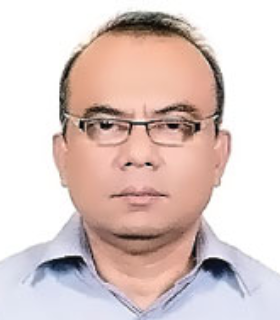Rohingya Crisis Management
|
Rohingya People Crisis Management In 2017, the world witnessed with awe one of the largest human displacements when over 750,000 Rohingya people fled to Bangladesh following violent military crackdowns in the Rakhine State of Myanmar. Although Bangladesh had previous experience of hosting the community in 1979 and 1992, this unprecedented exodus posed a great challenge for the developing country. However, Bangladesh set a great humanitarian example when it opened its border to these hungry and traumatized people. "In a world where so many borders are closed, [the people and Government of Bangladesh] have opened their borders and received their brothers and sisters coming from Myanmar and from the terrible events there," United Nations Secretary-General Antonio Guterres remarked. From day one of the crisis, citizens of Bangladesh showed their unmatched hospitality through aid from all over the country. The government wasted no time in setting up camps in Ukhiya and Teknaf with the assistance from UN organizations for Rohingya people. As of 2024, the 33 camps in Ukhiya and Teknaf sheltering almost a million Rohingya people are managed in a unique modality of humanitarian coordination. In this coordination mechanism, the government represented by the office of the Refugee Relief and Repatriation Commissioner (RRRC) is directly involved at the implementation level. All humanitarian actors including the UN agencies along with their partners coordinate with RRRC for execution of humanitarian activities of Rohingya people. A diverse range of actors including UNHCR, the lead organization in any refugee crisis, IOM, a long acting organization in Rohingya humanitarian response, WFP, the world's largest humanitarian organization responsible for food assistance, UNICEF, responsible for providing humanitarian and developmental aid mainly to children, UN Women, a global champion for gender equality, UNFPA, an organization working tirelessly to provide reproductive and maternal health support to distressed community, WHO, the specialized agency responsible for international public health, INGOs, NGOs and government organizations including government organizations from other countries coordinate with RRRC. All sectors operationalized for smooth and coordinated humanitarian response also coordinate with RRRC through an entity named Inter Sector Coordination Group (ISCG). World Bank, ADB, and donor countries are providing funding to this humanitarian Rohingya response. The joint response from all actors is designed and targeted to provide humanitarian assistance to the distressed Rohingya population and thereby alleviate their suffering till their dignified and sustainable repatriation to their homeland. Throughout the humanitarian operation in more than last six years different actors have set up some iconic infrastructures in and around the camp area to ease the suffering of the displaced population. This calendar is an initiative to display some of those with a few anecdotes. |







